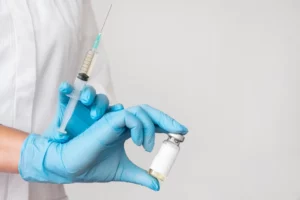 Vaccination plays a crucial role in safeguarding public health by preventing the spread of infectious diseases.
Vaccination plays a crucial role in safeguarding public health by preventing the spread of infectious diseases.
It is a cornerstone of disease prevention, offering protection to individuals and communities. By understanding the role of vaccination, participating in immunization programs, and staying informed about recommended vaccines, individuals can actively contribute to public health efforts. Vaccination not only saves lives but also serves as a powerful tool in the collective pursuit of a healthier and safer world.
Understanding the significance of vaccination is essential for individuals and communities to make informed choices about their health.
Introduction to Vaccination
Vaccination is a medical intervention designed to stimulate the immune system, providing protection against specific diseases. It often contains weakened or inactivated forms of pathogens.
Preventing the Spread of Contagious Diseases
The primary goal of vaccination is to create immunity, reducing the risk of infection and limiting the spread of contagious diseases within communities.
Herd Immunity Benefits
Vaccination not only protects individuals but also contributes to herd immunity. When a significant portion of a population is immunized, it helps shield those who cannot receive vaccines due to medical reasons.
Eradication of Diseases
Vaccination has played a key role in the eradication of diseases like smallpox. Continued efforts aim to replicate these successes with other preventable diseases.
Childhood Vaccination Schedule
Following the recommended childhood vaccination schedule establishes a foundation of immunity, protecting children from serious illnesses and their potential complications.
Adolescent and Adult Immunization
Adolescents and adults may require booster shots or specific vaccines to maintain immunity and protect against emerging health threats.
Preventing Severe Complications
Even if vaccinated individuals contract a disease, the severity of symptoms is often reduced, lowering the risk of complications and hospitalization.
Global Health Security
Vaccination efforts contribute to global health security by preventing the international spread of infectious diseases and protecting vulnerable populations.
Scientific Rigor and Safety
Vaccines undergo rigorous testing for safety and efficacy before approval. Continuous monitoring ensures ongoing safety.
Public Health Responsibility
Getting vaccinated is not only a personal choice but also a responsibility to protect oneself and contribute to the well-being of the community.
Picture Credit: Freepik
